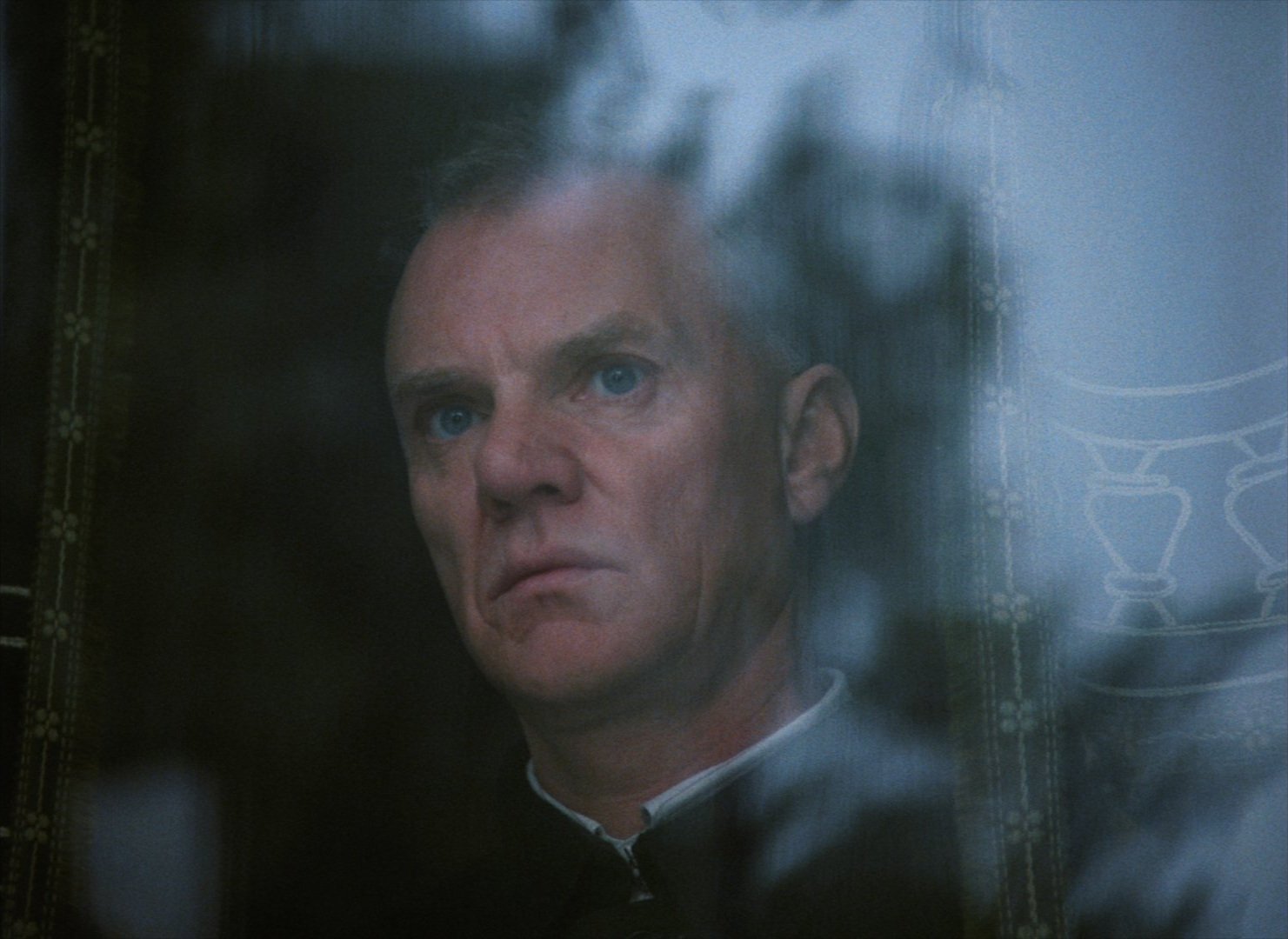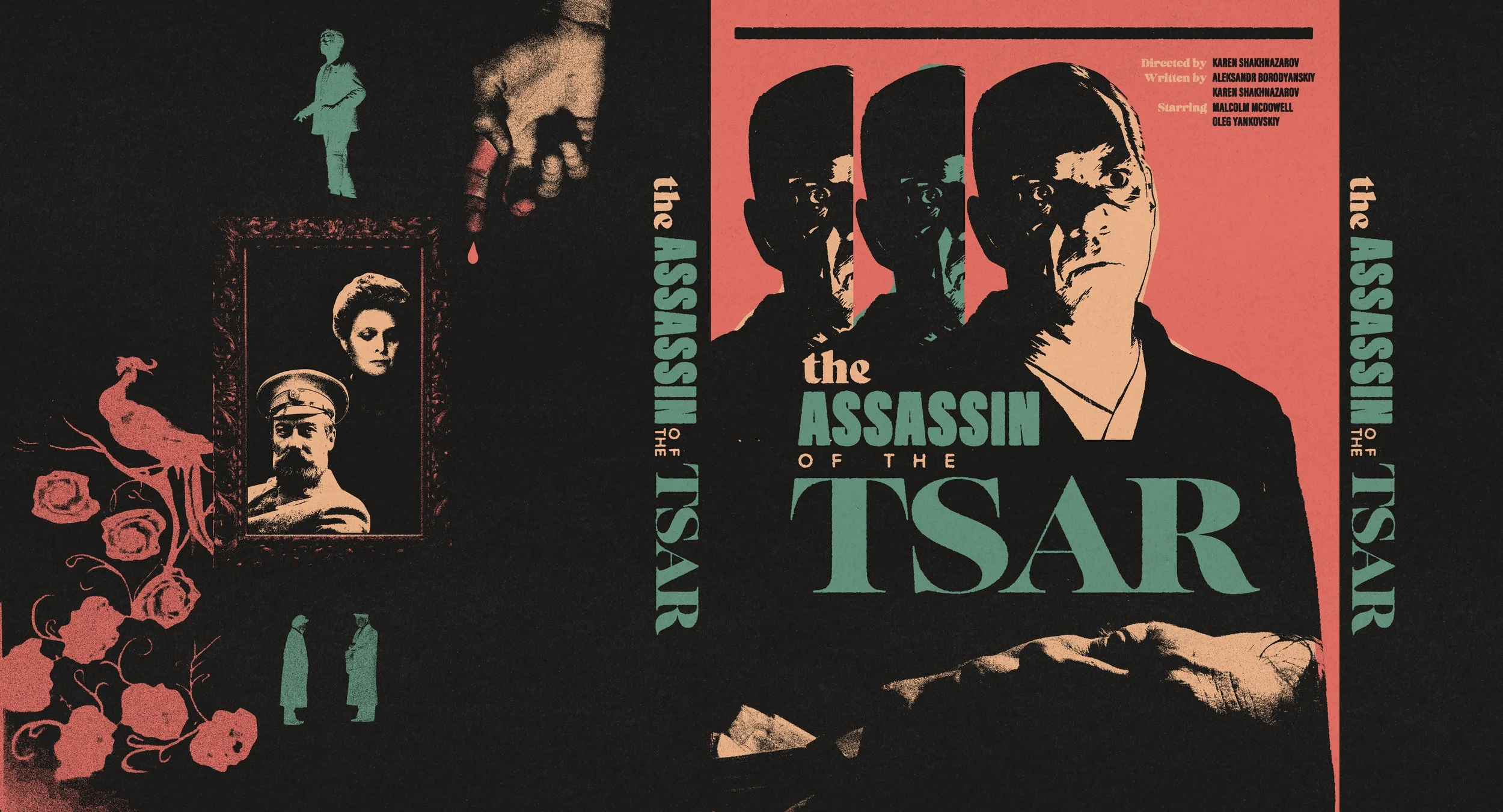THE ASSASSIN OF THE TSAR is a fascinating and unique film
The Assassin of the Tsar
Directed by Karen Shakhnazarov
Written by Alexander Borodyansky & Karen Shakhnazarov
Starring: Malcolm McDowell, Oleg Yankovskiy, & Armen Dzhigarkhanyan
Runtime: 104 minutes
Available from Deaf Crocodile
by Clayton Hayes, Staff Writer
The Assassin of the Tsar, originally released as Цареубийца in the Soviet Union, is an absolutely fascinating meditation on moments in time and how (as the adage goes) those who do not learn from history are doomed to repeat it. Its psychological drama weaves back and forth in time, its leads guiding the threads that ultimately tie them to their fate. Though the theme is not anything new, the dreamlike air of the cinematography and the metaphysical/supernatural elements of the narrative added up to a pretty unique film.
Malcolm McDowell stars as Timofeyev, a patient in a psychiatric hospital in the Soviet Union who believes that he is both Ignacy Hryniewiecki, the assassin of Tsar Alexander II, and Yakov Yurovsky, who led the execution of Tsar Nicholas II and his family. The hospital’s new head psychiatrist, Dr. Smirnov (Yankovskiy), assumes the role of Nicholas II in the hopes that play-acting Yurovsky’s counterpart will help resolve Timofeyev’s delusions. This action occurs despite Smirnov’s predecessor, Dr. Yegorovich, cautioning against probing too deeply into this particular patient’s case.
Scenes in the film’s present are interspersed with scenes representing the past, with McDowell in the role of Yurovsky and Yankovskiy as Nicholas II. These sequences are simultaneously vivid and dreamlike, filled with saturated colors (missing from the film’s contemporary scenes) and filmed with a soft focus that blurs the edges of the frame. As the film progresses, that visual blurring moves beyond the frame to a narrative blurring of past and present (or perhaps fantasy and reality). It feels almost as though we’re watching a film within a film, something that fits alongside Assassin’s deliberate pacing and thematic interest in inevitability and in fate.
McDowell is an actor with a very uneven filmography, but, in this case, he handles his multifaceted role extremely well. And thank goodness he does, because he shoulders most (if not all) of the narrative weight of the film. Assassin is almost entirely focused on the psychodrama between his character(s) and Yankovskiy’s, but the dual role of Smirnov/Nicholas II feels less demanding as both characters spend much of their time gazing mournfully into the middle distance.
Coming to the film now, over two decades after its release, what most struck me about the film was how it encapsulated such a specific moment in time. A Soviet/UK co-production was likely impossible until Gorbachev and glasnost in 1986, and the Soviet Union that co-produced the film was officially dissolved only two months after the film’s wide release. Though the unmarked grave of Nicholas II and his family had been found in the late 1970s, the topic remained divisive enough that it wasn’t until July 1991, two months after Assassin premiered at Cannes, that their bodies were recovered for identification and to be given a proper burial.
All of this context adds even more layers to an already-layered film, and I feel like the result is an extremely valuable cultural artifact (as well as an interesting film in its own right). If any of the above piques your interest, I highly recommend giving The Assassin of the Tsar a look; it’s available to preorder for a mid-to-late March release from Deaf Crocodile via Vinegar Syndrome.



